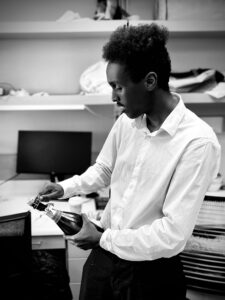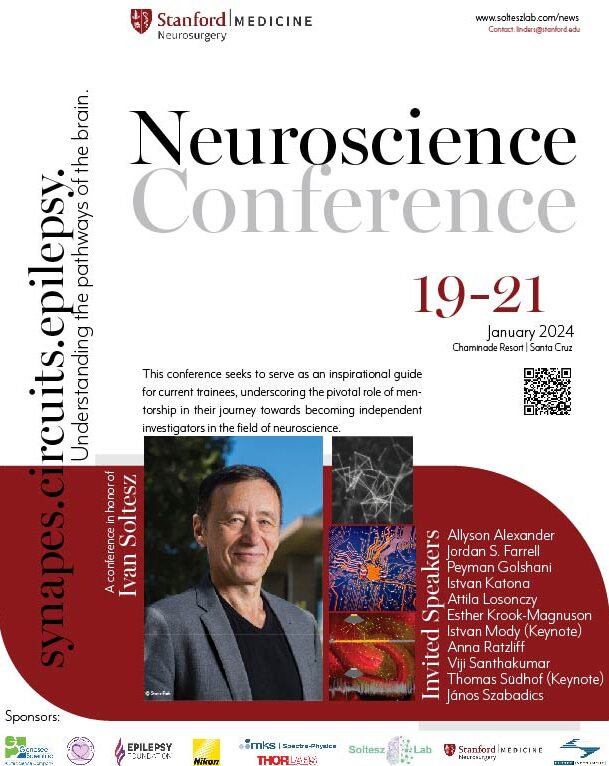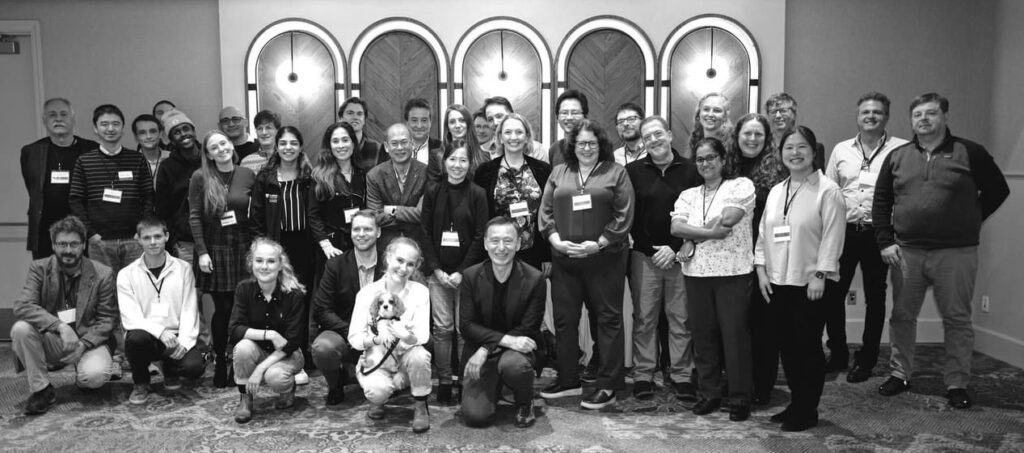In: News
We are thrilled to announce that Annie Goettemoeller has been accepted into the prestigious Brain Resilience Postdoctoral Scholar Program at Stanford University. The Brain Resilience Postdoctoral Scholars award of the Knight Initiative for Brain Resilience supports trainees generating paradigm-shifting insights on the mechanisms of neurodegeneration and how to maintain brain resilience into old age.
With her expertise in electrophysiology and neurodegeneration, Annie’s research aims to uncover the mechanisms underlying disease progression and identify ways to preserve brain resilience. Her current work focuses on hippocampal events, such as dentate spikes, which are critical for memory, and how these events are disrupted in mouse models of Alzheimer’s disease. This impactful study is co-sponsored by Dr. Alice Ting, whose lab has pioneered novel tools to investigate these mechanisms. Annie’s involvement in this program marks an important milestone in her path toward becoming an independent investigator, dedicated to advancing both scientific knowledge and therapeutic strategies.
January 27, 2025
Unraveling the role of endocannabinoid metabolism in brain aging
The Phil & Penny Knight Initiative for Brain Resilience
As we age, the brain undergoes profound changes that can lead to cognitive decline and increase the risk of conditions like Alzheimer’s and epilepsy. One area of research that holds significant promise is the brain’s endocannabinoid system, often referred to as the brain’s natural “chill-out” system. This system plays a key role in regulating neural activity and preventing overstimulation. However, as we age, disruptions in this system can trigger inflammation and the production of prostaglandins, molecules linked to cognitive decline.
In our lab at Stanford, my team, in collaboration with neuroscientist Katrin Andreasson, is exploring how the endocannabinoid system could be harnessed to enhance brain resilience. Thanks to support from a Knight Initiative Catalyst Grant, we are investigating whether targeting the relationship between this system and prostaglandins can help restore cognitive function, opening the door to new therapies for age-related brain conditions
In our latest video series, we delve into our research on healthy aging and protecting against neurodegenerative diseases. We also highlight insights from Peter Klein, Ph.D., from our lab, on the potential therapeutic implications of this exciting work.
Additionally, credits for the video go to Devin Powell, and the write-up credits go to Lindsay Borthwick.
December 15, 2024
Leyi and Emma – Welcome to Soltesz Lab!
Leyi and Emma are currently rotating in our lab during her studies.
December 1, 2024
Jayashri is joing our lab for her PhD studies!
Jayashri is a PhD student at Stanford’s Neurosciences program. Prior to Stanford, Jayashri worked in the lab of Dr. David Olson at UC Davis, where she received rigorous training in pharmacology, biochemistry, and molecular biology. At Stanford, Jayashri seeks to interrogate the contributions of G protein-coupled receptors (GPCRs) to neuronal excitability and neural circuits. After her graduate studies, Jayashri hopes to pursue leadership roles in sciencewhere she can apply her knowledge and skills to benefit science and, morebroadly, humankind. Outside of the lab, Jayashri enjoys playing tennis, reading, updating her blog, and spending time with friends and family.
September 15, 2024
Ying and Jayashri – Welcome to Soltesz Lab!
Ying and Jayashri are currently rotating in our lab during her studies.
August 29, 2024
Congratulations, Mahad, for passing the Qual exam!
We are excited for you to see you one step closer to your MD/PhD. Cheers!

August 12, 2024
Welcome to Soltesz Lab, Annie!
Annie completed her B.S. in Neuroscience at the University of Michigan and her Ph.D. in Neuroscience with Dr. Matthew Rowan at Emory University. During her Ph.D., she explored early mechanisms of Alzheimer’s Disease, focusing on the vulnerability of inhibitory interneurons in the Lateral Entorhinal Cortex. She recently joined the Soltesz Lab where she will continue to work between the Entorhinal Cortex and Hippocampus, focusing on Dentate Spikes.
April 29, 2024
Eliza and Sky – Welcome to Soltesz Lab!
Eliza and Sky are currently rotating in our lab during her studies.


SCE Conference in honor of Ivan Soltesz | Chaminade Resort | Santa Cruz | January 19-21 | 2024 | Website
January 8, 2024
Hannah and Sarah – Welcome to the Soltesz Lab!
Hannah and Sarah have rotated in our lab and now will be joining with Aragon Soltesz Lab for their PhD studies.